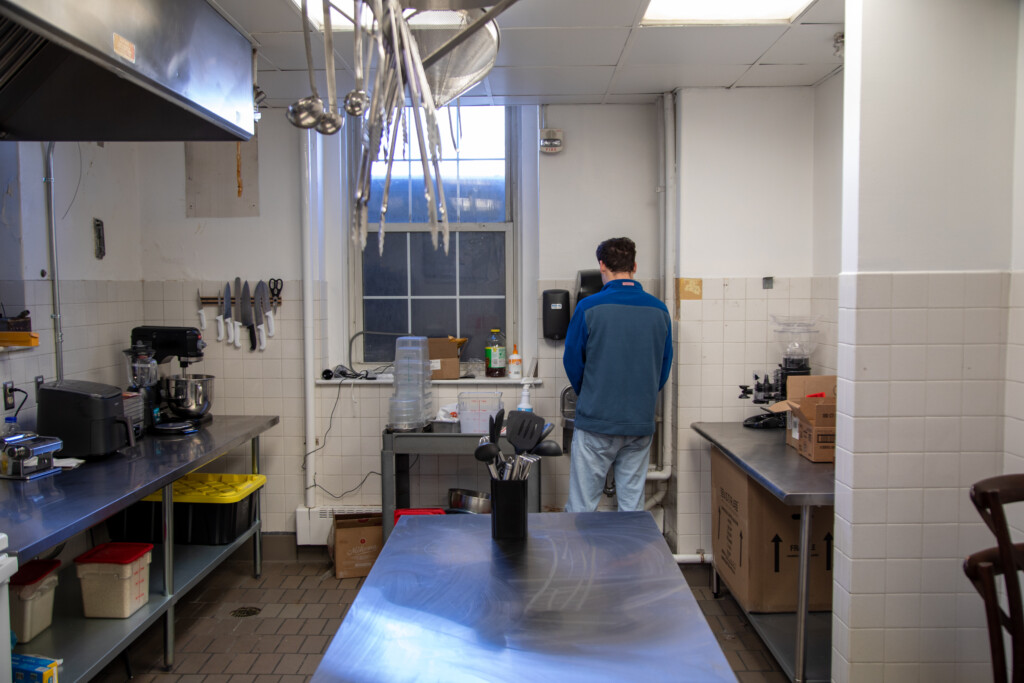Last Thursday, Dec. 4, I went to the Community Conversation hosted by the Office of Equity & Inclusion’s (OEI) Restorative Practices Team and the Burgett Intercultural Center (BIC). The event was advertised as a space for sharing feelings and thoughts about the recent ‘wanted’ poster incident and the administration’s response. It was staffed by longtime restorative justice practitioners from OEI, counselors, staff from the Gandhi Institute for Nonviolence, and representatives from BIC. It was clear that the organizers had prepared for 100 or more students. Unfortunately, those preparations were underutilized. All in all, only five students participated. Five students. Out of a campus of almost 7,000 undergrads, five showed up.
At around 7:10 p.m., when organizers moved chairs away from the prepared circle in the center of the room, shrinking it to meet the size of our group, I was disappointed, but not surprised. The measly turnout for this event was a symptom of a bigger issue, a campus community that shrinks away from the prospect of dialogue with individuals who do not already agree.
Many of us on campus have strong feelings about the poster incident, the administration’s response, the war in Gaza, and their corresponding reactions on campus. Those of us with strong feelings and opinions, especially anyone who considers themself a leader on campus, have a responsibility to show up and engage in conversations on those issues when provided a space to do so, and to work to create those spaces where they are lacking. It’s not enough to find ways to voice your own opinion, we also have a responsibility to listen to others.
We are all students. We come here to learn from our professors and each other. We can’t do that if we boycott the rooms where learning is supposed to take place, or if we make assumptions in everyday campus life that keep us from engaging with people outside of our ideological silos. Over the past semester, I’ve been asked “Are you a Zionist?” by friends and classmates on multiple sides of the issue, as if it were a simple yes or no replacement for the real question that was being asked: “Should I be willing to share space with you?”
It can be uncomfortable and deeply frustrating to hear people say things about these sensitive topics that feel inaccurate, unacceptable, and sometimes hurtful. This is especially true when we talk with someone that has a different stake in the issue than we do. I have frequently been in situations when I’ve heard someone say something about the war or Israel/Palestine in general, that leaves me angry and questioning whether it’s even worth further engagement with that person. But it is crucial that we keep showing up to these conversations.
Participation in dialogue doesn’t require suppressing one’s own convictions. Strong opinions, in their entirety, are valuable contributions to conversations, and so are the lived experiences behind them. But please understand, so are the opinions and the experiences behind the opinions of others. Even those who are steadfast in their beliefs can benefit from hearing the why behind the beliefs of others. When we are students of peers’ experiences, we gain a deeper understanding of their viewpoints and our own. That understanding is valuable.
Although a small group, the Community Conversation was an example of a structured mode of engaging with each other that supported self-reflection and understanding of other participants’ whys. That began with introductions from each person that included the life experiences that were informing our reactions to the posters. All of us got to delineate where we were coming from, what we were feeling, and what we’d like to see next. We also had the opportunity to be heard by each other and University staff. As we were listening, we also heard the silence of the rest of the University community.
It’s especially important to engage in dialogue like this, at a time when the University, alongside other campus organizations, is looking to shut that dialogue down. In a recent class, Professor James Johnson spoke about how our University was failing us by choosing a carceral response to the poster incident that precluded an educational response. I agree. The University’s response to the posters was not to facilitate dialogue or education on antisemitism or the war in Gaza. Rather, it shut down conversation of harm done by the content of the ‘wanted’ posters by responding to it as if it were simply a property crime. The University doesn’t seem to believe that it is worth having those conversations among the student community. We shouldn’t be proving them correct by not showing up when they do occur.
Instead, we should demonstrate that there are viable alternatives to the politics of domination that are prevalent on our campus. We should be curious about the feelings and opinions of our peers and how they came to them. We should be willing to step into uncomfortable conversations with people unlike ourselves. We should do so both for the sake of better understanding and to shape a better campus climate.
Hostile campus climates are not unique to UR, but that is not an excuse for refusing our responsibility to create a better one. A better climate can be achieved by fostering and participating in thoughtful dialogue with our peers. Promoting dialogue isn’t some insidious way of sanctifying moderation, it’s about creating spaces for us to engage positively as students and as people.
We can choose dialogue as a medium for bridging campus rifts if we show up. I’ll be at the next community conversation — I hope to see you there.

